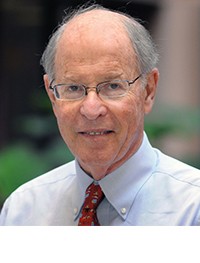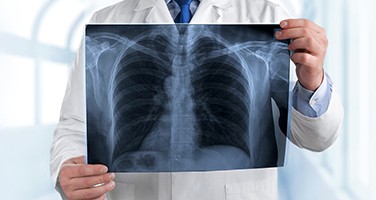The Etiology of Community-Acquired Pneumonia
Do Data Support the Guidelines?
Pneumonia is the eighth leading cause of death in the United States. Along with influenza, it causes more deaths globally than any other infectious disease.
Pneumonia (acute alveolar lung infection) presents with lung infiltrates and can be accompanied by fever, coughing, sputum production, physical evidence of consolidation, and elevated white blood counts. Adults aged 65 and older and children aged five and under are more likely to become ill with pneumonia. Some infections can be prevented with vaccines, and most respond to antibiotics or antiviral drugs.
Community-acquired pneumonia (CAP) is caused by bacterial, viral, fungal, or zoonotic organisms that produce mild to severe illness in people of all ages. Diagnosing CAP based on clinical presentation and chest X-ray findings can help guide empiric treatment with the safest and most narrow spectrum drug option.
In this P.A.C.E.-accredited Fisher Healthcare webinar, Daniel Musher, MD, will review the organisms currently thought to cause CAP, describe the role of normal respiratory flora as possible etiologic agents, and relate empiric therapy guidelines to the causative organisms.
Learning Objectives
This webinar will help you:
- Recognize organisms currently believed to cause CAP
- Describe the role of normal respiratory flora as possible etiologic agents of CAP
- Relate guidelines for empiric therapy to those organisms
Watch On Demand Download Slides (PDF, 2MB)
This webinar is produced by Whitehat Communications, a provider of continuing education programs in clinical laboratory sciences that has been approved by the ASCLS P.A.C.E. Program. One P.A.C.E. credit hour will be provided for this complimentary, basic-level program.
Presenter

Daniel M. Musher, MD
Dr. Musher is the Infectious Disease Section Chief at the Michael E. DeBakey VA Medical Center and Professor of Medicine–Infectious Disease at the Baylor College of Medicine. He is listed as one of the best infectious disease doctors in the nation, and received the 2007 Infectious Diseases Society of America Clinical Teacher Award.
Musher is an Air Force veteran and graduated magna cum laude from Harvard. He received his medical degree from the Columbia College of Physicians and Surgeons, and completed his clinical training at Bellevue Hospital and Tufts–New England Medical Center. He has held his current position since 1971 and has been voted outstanding faculty by students and residents. Baylor College of Medicine has recognized him with multiple teaching awards, including the Barbara and Corbin J. Robertson Presidential Award for Excellence in Education, the John P. McGovern Outstanding Teaching Award, and the Baylor Alumni Distinguished Faculty Award. He has also been inducted into the Baylor Hall of Fame for Excellence in Teaching.
As a national expert in respiratory and gastrointestinal infections, Musher frequently writes review articles for prestigious medical journals, including the New England Journal of Medicine. He holds a VA Merit Review Grant for the study of immunization to protect veterans against pneumococcal pneumonia.

